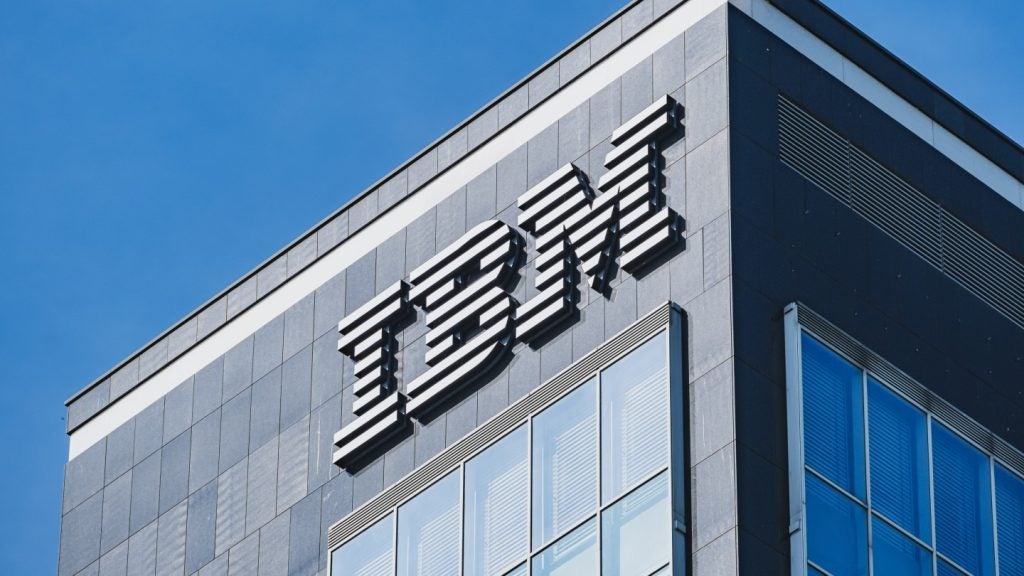The future of the IT services industry will be shaped by a range of disruptive themes, with enterprise SaaS being one of the themes that will have a significant impact on IT services companies. A detailed analysis of the theme, insights into the leading companies, and their thematic and valuation scorecards are included in GlobalData’s thematic research report,Cloud Computing – Thematic Intelligence. Buy the report here.
Cloud computing’s importance has grown significantly in recent years. It has enabled the use of shared IT infrastructure and services to create a flexible, scalable, and on-demand IT environment. The cloud is now the dominant model for delivering and maintaining enterprise IT resources, including hardware (e.g., compute, storage, and networking), software (e.g., database, analytics, and enterprise resource planning), and platforms and tools for application developers.
Cloud computing provides users with an approach to consuming IT that is significantly more flexible, resource-efficient, and cost-effective compared to traditional IT. Cloud-based IT resources can be delivered privately, for use by one or a specific group of enterprises, or publicly, where IT resources are accessed according to multi-tenancy principles. Hybrid cloud environments, which combine the use of both public and private cloud, are becoming increasingly popular among enterprises that aim to enjoy the benefits of both.
In the SaaS market, traditional IT stack infrastructure vendors, specialising in everything from enterprise resource planning (ERP) and customer relationship management (CRM) software to specialist software for different vertical segments, face competition from a vast range of organisations that offer cloud-based, SaaS alternatives. The latter use subscription-based, pay-as-you-use business models to provide traditional business software.
However, not all companies are equal when it comes to their capabilities and investments in the key themes that matter most to their industry. Understanding how companies are positioned and ranked in the most important themes can be a key leading indicator of their future earnings potential and relative competitive position.
According to GlobalData’s thematic research report, Cloud Computing, leading adopters include: Microsoft, Amazon, Alibaba, IBM, Alphabet, Cisco, Dell, Oracle, Progress Software and VMware.
Insights from top ranked companies
Microsoft provides a broad spectrum of services, including cloud-based solutions, solution support, and consulting services. Its Azure business is second only to AWS for its comprehensive cloud model, including core development technologies such as mobile, IoT, and serverless computing. The billions of dollars of annual investment the company has made in Azure are paying off, allowing Microsoft to reposition itself as a cloud-first and mobile-first company. Microsoft has built momentum through key acquisitions (including Xamarin in 2016), and technology partnerships, including Oracle and Docker, recruiting more developers by offering them a broader platform (including iOS and Android) on which to create apps. However, Microsoft faces increased pressure from OSS-based technologies offered by Red Hat and Cloud Foundry, as well as disruptors providing backend integration via API services, such as Chef. It also lacks internal professional services needed to support complex application infrastructure integrations.
As one of the largest providers of server virtualisation technology and a major provider of software-defined networking and storage, VMware commands a leading position in the market for on-premises data centre infrastructure, private cloud solutions, and increasingly platforms services based on its upstream Kubernetes containerisation and microservices service mesh technologies. This also gives the company a strategic advantage as a provider of hybrid and multi-cloud solutions based on offerings such as VMware Cloud on AWS and Azure VMware Solutions. However, VMware is vulnerable to competition from vendors that offer hybrid cloud solutions specifically targeting customer preferences for non-VMware technology environments.
At the time of writing, Alibaba Cloud operates in 21 data centre regions and 63 availability zones around the world, making it one of the better-represented global IaaS providers. Alibaba Cloud can offer differentiation from its more established rivals through its presence in China and also in Australia, Singapore, Japan, Hong Kong, Indonesia, and India. Alibaba also competes in the market for hybrid cloud solutions with its Apsara Stack offering, which allows enterprise customers to operate an on-premises version of Alibaba’s public cloud within their own data centres.
To further understand the key themes and technologies disrupting the technology industry, access GlobalData’s latest thematic research report on Cloud Computing.
- Accenture
- IBM
- Capgemini
- Infosys
- NTT Data
- Tata Consultancy Services
- Cognizant
- HCL Technologies
- Wipro
- Tech Mahindra
- Atos
- Fujitsu
- DXC Technology
- TietoEVRY
- LTI
- CGI
- EPAM Systems
- World Wide Technology
- MphasiS
- Genpact
- Indra Sistemas
- Computacenter
- Sopra Steria
- Conduent
Data Insights
From

The gold standard of business intelligence.
Blending expert knowledge with cutting-edge technology, GlobalData’s unrivalled proprietary data will enable you to decode what’s happening in your market. You can make better informed decisions and gain a future-proof advantage over your competitors.
Frequently asked questions
-
1. How are companies using cloud computing?
Companies are using cloud computing to access on-demand computing resources, storage, and applications over the internet. This allows them to reduce their IT infrastructure costs, increase scalability, and improve flexibility. Cloud computing is being used for a variety of purposes, including data storage, application development, and deployment, as well as for running mission-critical applications.
-
2. Who are the leading providers of software as a service?
The leading providers of software as a service (SaaS) include Salesforce, Microsoft, SAP, Oracle, Alphabet, Workday, Infor, Adobe, Zendesk, ServiceNow, Box, Dropbox, Datadog, New Relic, Intuit, and Xero. These companies offer subscription-based, pay-as-you-use business models to provide traditional business software.
-
3. Who are the leading providers of platform as a service?
The leading providers of platform as a service (PaaS) include Alphabet, VMware (Pivotal), IBM (Red Hat), Amazon, Microsoft, Salesforce (Heroku), and Oracle. These companies offer cloud-based platforms for developing, testing, and deploying applications.
-
4. Who are the leading providers of infrastructure as a service?
The leading providers of infrastructure as a service (IaaS) include Amazon Web Services (AWS), Microsoft Azure, Google Cloud, and Alibaba Cloud. These companies offer on-demand computing resources, storage, and networking over the internet.
-
5. Who are the leading providers of cloud professional services?
The leading providers of cloud professional services include IBM, Accenture, TCS, Kyndryl, Informatica, Cognizant, Atos, Infosys, DXC Technology, Wipro, HCL, and NTT. These companies offer a range of professional services that run the gamut from design and application re-engineering to post-deployment support.
-
6. What is the projected market size of cloud services and cloud infrastructure?
According to GlobalData forecasts, total global spending by enterprises on IaaS, PaaS, and SaaS in 2021 amounted to $340.4 billion. GlobalData estimates that, in 2021, total global spending by enterprises on private cloud services, hybrid cloud services, and cloud management platforms amounted to $160.9 billion.









